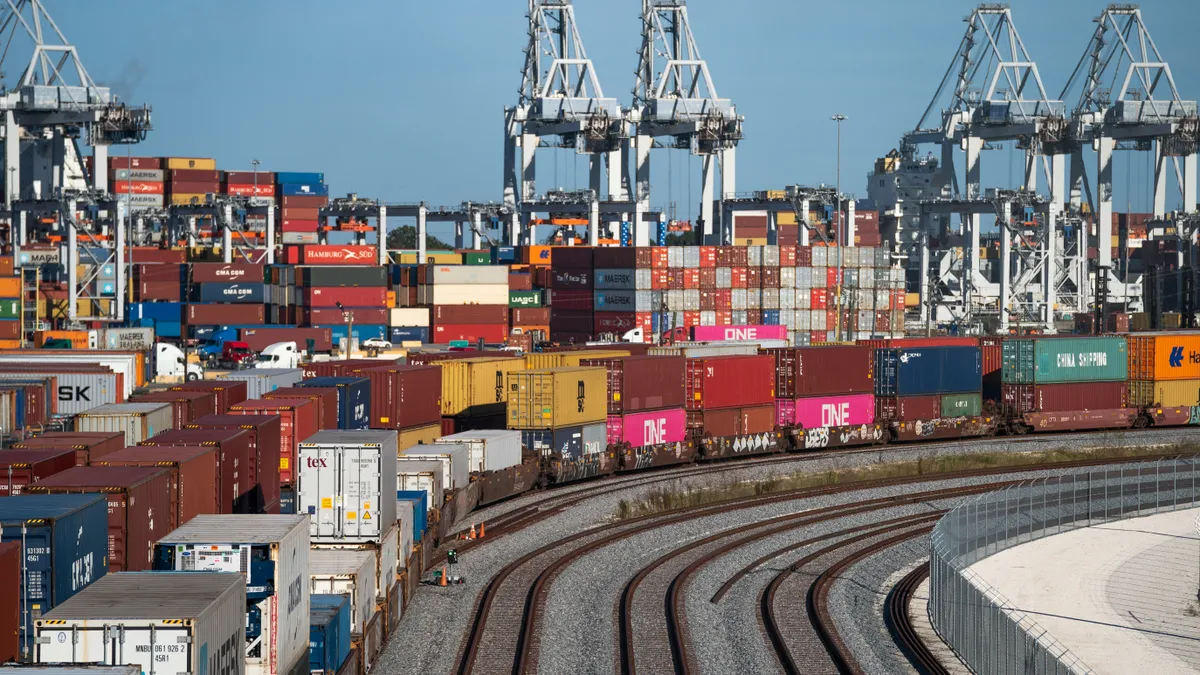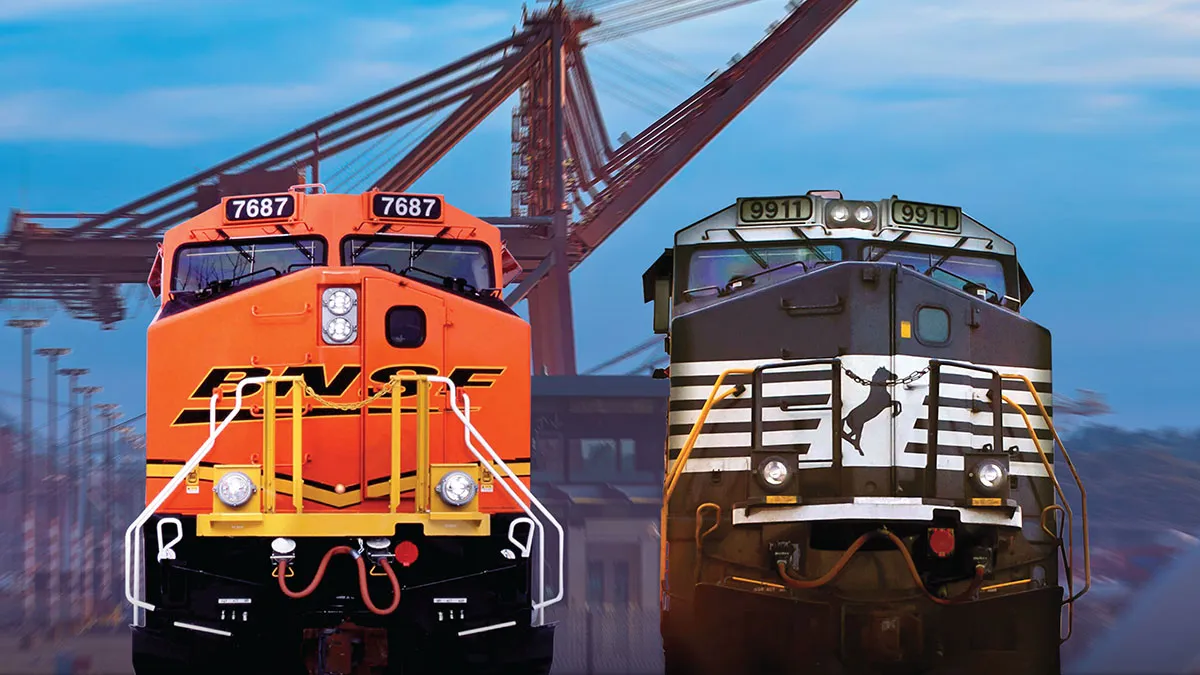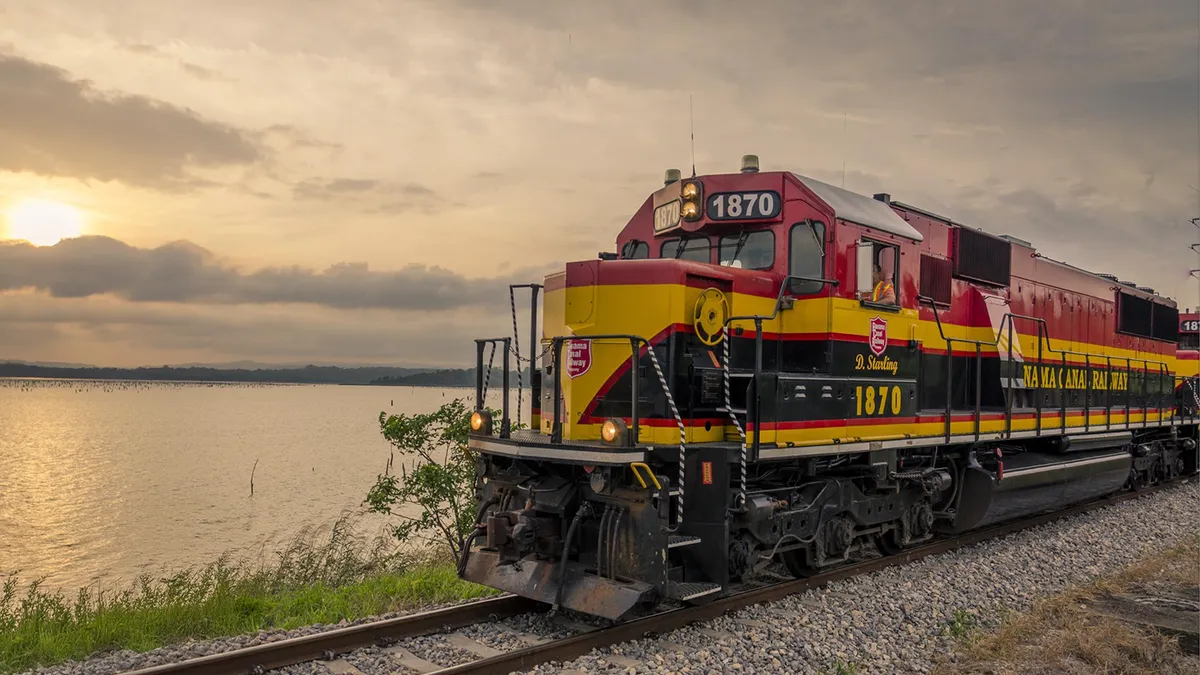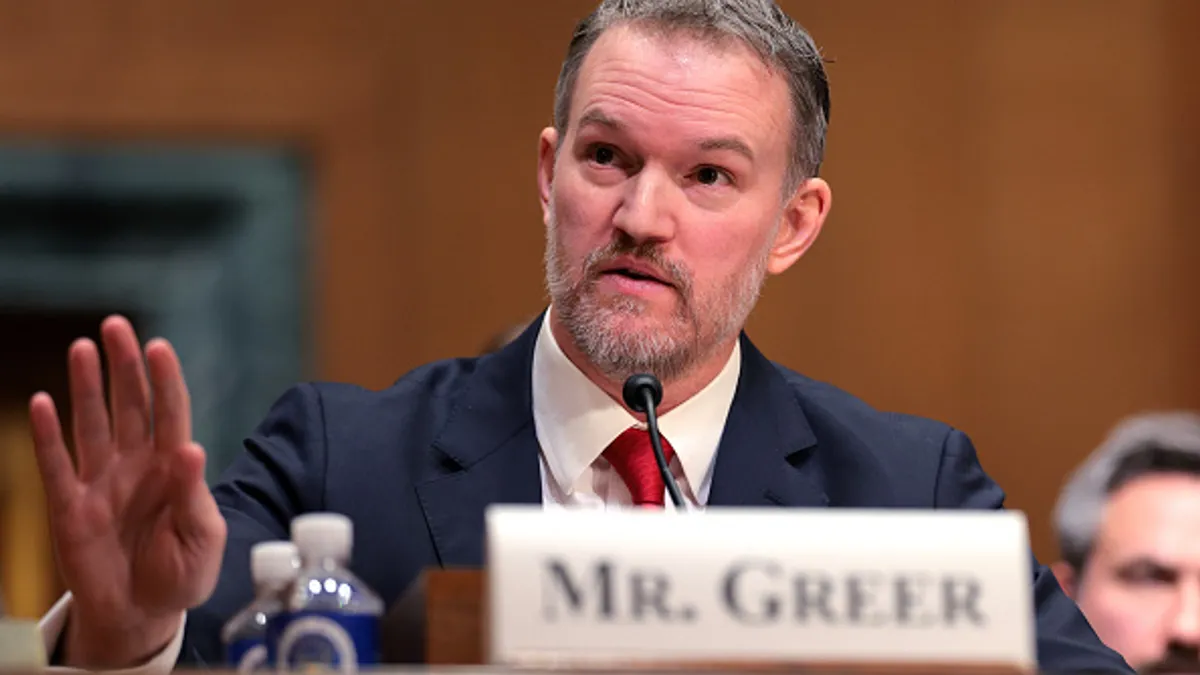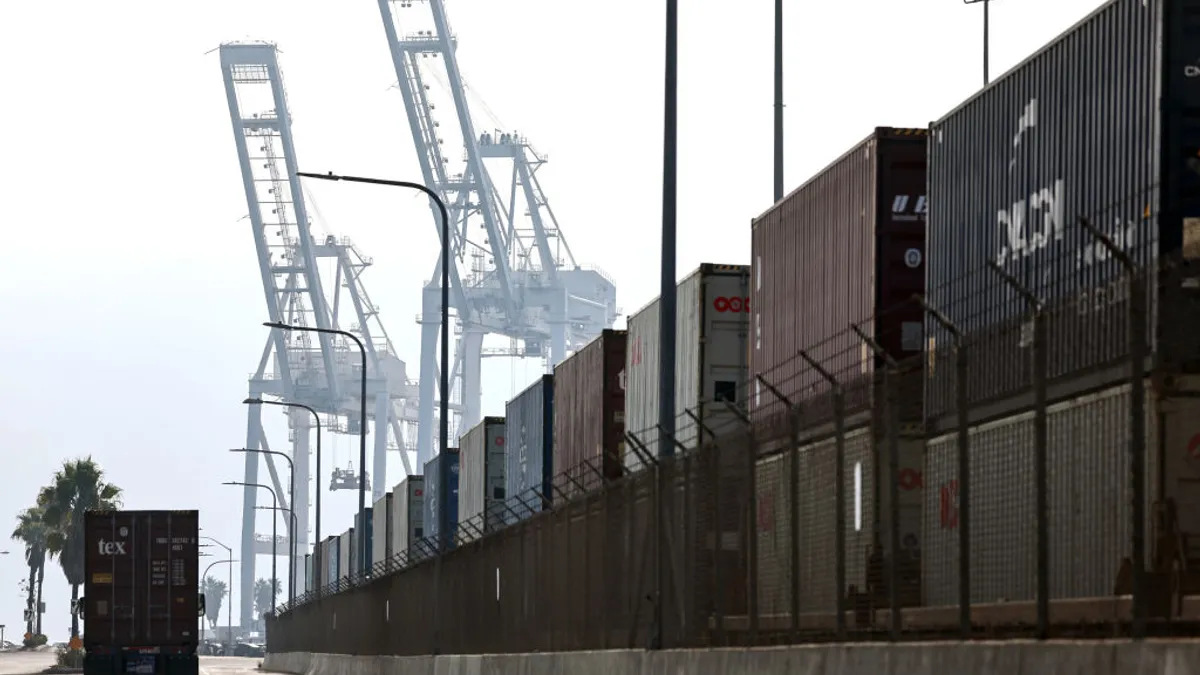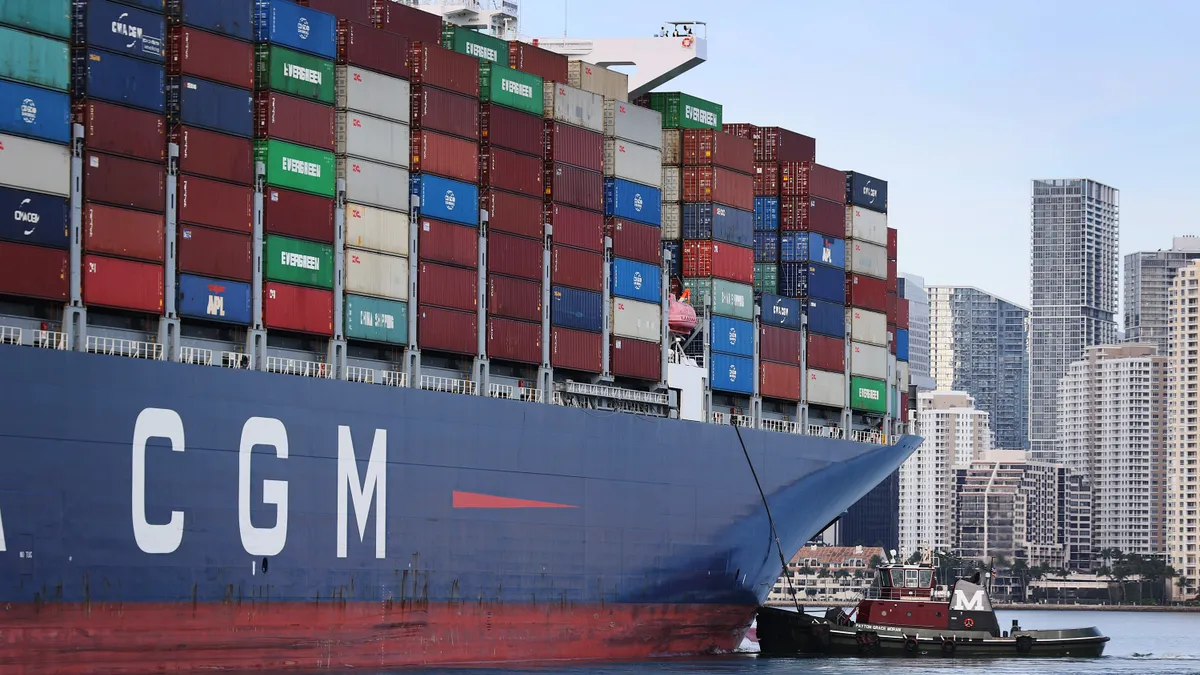Shippers are sounding the alarm over major declines in rail service, pushing regulators in an emergency hearing Tuesday to intervene as long delays and labor constraints threaten to shutter some operations.
Service issues in the rail industry have mounted in recent months, threatening to exacerbate supply chain headaches that have already raised costs and created major shipping delays for producers. It could also lead to new supply shocks down the line — the agriculture industry, for example, is entering the planting season, and a delay in products such as fertilizer could impact crop yields in the fall.
"When railroads charge unreasonable rates and provide poor service, farmers struggle to make ends meet. Consumers pay higher prices at the grocery store. And the United States becomes less competitive on the global market," said Deputy Secretary of Agriculture Jewel Bronaugh.
The rising complaints have caught the attention of the White House in recent days. White House Press Secretary Jen Psaki noted Monday that the administration has proposed an easier path to apply for service relief as "businesses have been dealing with frequent ... rail delays and poor service."
Earlier this month, the Surface Transportation Board announced it would hold a two-day emergency hearing to hear from businesses and press railroad executives on their short and long-term plans to restore service.
Most Class I railroads are set to testify Wednesday on their plans to speed up the flow of goods. Here's a look at highlights of day one of the hearing, including what shippers say are the major problems in rail right now.
Deteriorating service adds to supply chain chaos
Chemical companies, agriculture producers and others that rely on rail to move their goods said unfilled orders, missed switches and other delays have straddled them with more fees and higher costs.
In the agriculture sector, unfilled grain orders are the highest on record, creating cascading effects along the supply chain, according to Bronaugh. Ethanol and biodiesel facilities have had to slow or in some cases shut down production. Some livestock operations — unable to get the grain they need — have had to weigh whether to depopulate their herds.
Other businesses noted that rail service issues have led to production outages. Cargill's sweeteners business, for example, shut down production on 25 occasions last year "due to lack of proper service provided by the carriers," according to North America Rail Leader Brock Lautenschlager. The company is seeing an 18% increase in transit times for its private fleet, and delays have created issues in the supply of rail cars.
Molson Coors also noted that a delay in transit times has led to volatility in the availability of railcars. David Burchett, procurement director for Molson Coors' supply chain indirects team, said the company is concerned it will "not have enough cars to keep our brewery supplied with malt during the important summer months when we see the highest consumption of our products."
Burchett also said delays have led to higher demurrage fees, which railroads charge when cargo dwells beyond a certain point. Fees have increased two to three times on average for the company's plants despite no changes in shipping behavior. One location is set to receive $2 million in demurrage fees this year, up from the typical $850,000.
"Service from railroads has been degrading for several years. We the customers take on that burden, whether it be with the additional resources to manage through those issues, increased inventory to buffer for the delays, and increased costs to lease or buy additional equipment," said Burchett.
Pushing for solutions
Railroads have noted that crew availability remains one of the biggest constraints on the network. But rail union members noted in the hearing that delays sometimes occur because railroads set up the network to move longer and slower trains.
Carriers typically opt to run longer and heavier trains as a way to cut costs, though union members note that some trains are so long that they are difficult to move and slow down handling of other trains in a yard.
"Our working members are also now tasked with operating trains so excessive in length that is that it is impossible for more than one train to move because the territory doesn't have passing sidings or alternate tracks," said Jeremy Ferguson, president of SMART Transportation Division, which represents employees on every Class I railroad. "The solution: stop all other trains until the very long train has traversed from point A to point B. The congestion this causes is wreaking havoc on our ability to service customers."
Delays in moving longer trains have also required the use of more crew members, as some workers meet or exceed maximum hours of service before the train is moved. Ferguson pushed the board to limit the length of trains and prevent railroads from idling trains once they reach certain speeds, which is done to save fuel costs.
Shippers also had their own list of solutions for the board. Among other things, they asked for service assurance plans, more data around the first and last mile, and for the board to adopt reciprocal switching rules, which shippers say will provide more service options in the face of higher congestion. Companies pushed the board to financially penalize rail carriers for poor service.
"Utilizing the same demurrage concepts that railroads use to incentivize customers would help prevent rail service challenges in the future," said Michael Seyfert, president and CEO of the National Grain and Feed Association. "The addition of demurrage fees would increase the resolve of the railroads to ensure they move trains faster."
The suggestions come as the board has already unveiled plans to expedite the path for service relief. STB Chairman Marty Oberman said railroads will need to do more in order to restore service.
"We got to do better," he said following testimony from CSX. "And if all you can do is squeeze a few more deliveries out ... we're that much further ahead. "



